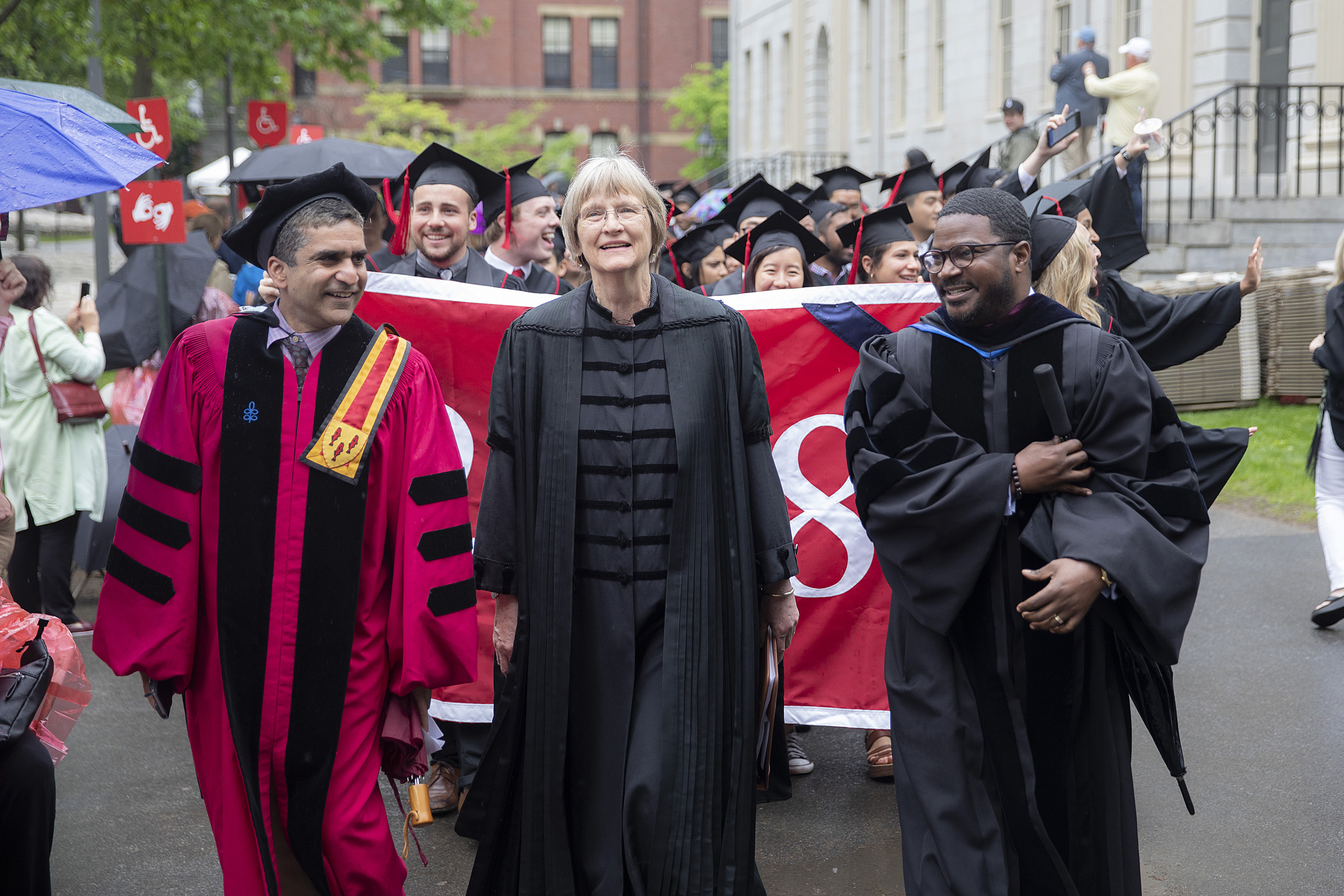
Harvard President Drew Faust leads the procession to Tuesday’s baccalaureate service at Memorial Church.
Kris Snibbe/Harvard Staff Photographer
Spirit of transformation animates Faust, students
‘See with fresh eyes,’ president urges Class of 2018 in final Baccalaureate Address
Fifty years ago, Martin Luther King Jr. was to be Harvard’s Class Day speaker. The civil rights leader was assassinated only weeks before he was set to address the Class of 1968, but his enduring legacy includes “a call to action that still rings out today,” said President Drew Faust during Tuesday’s Baccalaureate service at Memorial Church.
“[King] said: ‘Transform the jangling discords of our world into a beautiful symphony of brotherhood. Transform this pending cosmic elegy into a creative psalm of peace.’”
Transformation was a theme Faust returned to repeatedly during her final Baccalaureate Address, 10 years after she told the Class of 2008 to put their deepest passion before the safer course of action, or, as her “parking-space theory of life” holds: “Go to where you want to be. You can always circle back to where you have to be.”
The Class of 2018 inspired her to consider amending and expanding her theory, Faust told students on Tuesday, based on the spirit of inquiry they exhibited during their time at Harvard.
Their questions included “How can I help?” and “What is necessary at this time and place in the world?”
“You have developed a more expansive goal — a broadening sense of ‘where you want to be,’” said Faust, adding: “The transformation promised at your convocation turned out to be less about you and more about everything around you.”
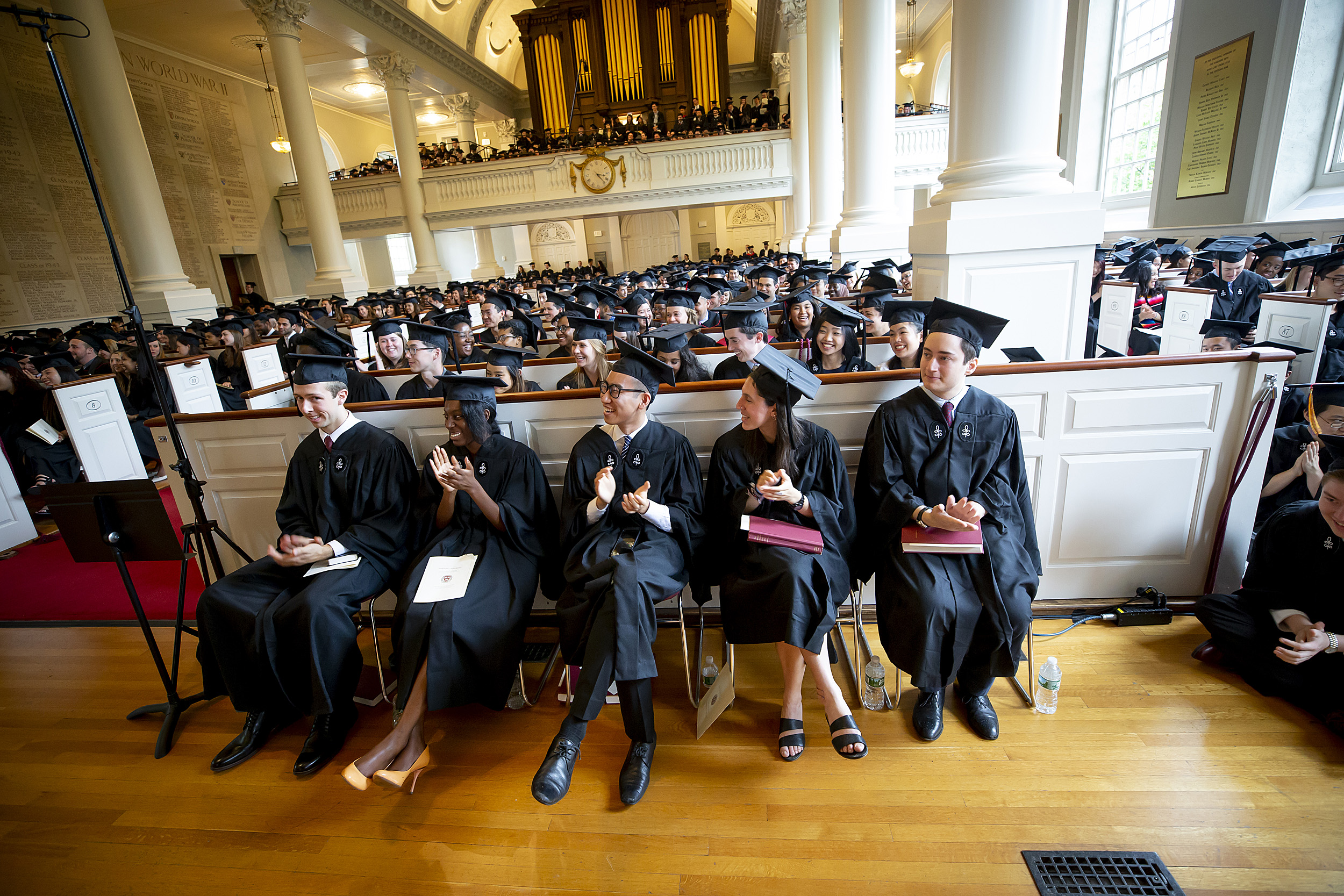
Rose Lincoln/Harvard Staff Photographer
Faust had the seniors in stitches during a humor-filled preamble. She called the Baccalaureate one of her “favorite events,” despite feeling daunted at imparting “the sober wisdom of age to the semi-sober impatience of youth.” The crowd roared its approval.
In four years on campus, the students helped to transform Harvard and the world around them as they strived for reinvention, inclusion, and innovation, Faust said. Their accomplishments included the student production “Black Magic,” a play about race and identity “that shattered precedent on the Loeb main stage.” They also turned out a range of prize-winning theses, including work on Lassa virus detection and a cultural history of the helicopter in Vietnam.
The class witnessed transformations in the form of a new concentration in Theater, Dance & Media, voluntary composting in the dorms, an end to backpack security checks at Lamont Library, and a shift in language and culture with the elimination off “House master” in favor of faculty dean. Students also saw “the entire campus agitate over sexual harassment and sexual assault,” Faust noted.
Building on her theme, Faust described three principles of transformation for the soon-to-be-grads to ponder. The first included a reminder that life “is not just about your passions; it is about your purpose.”
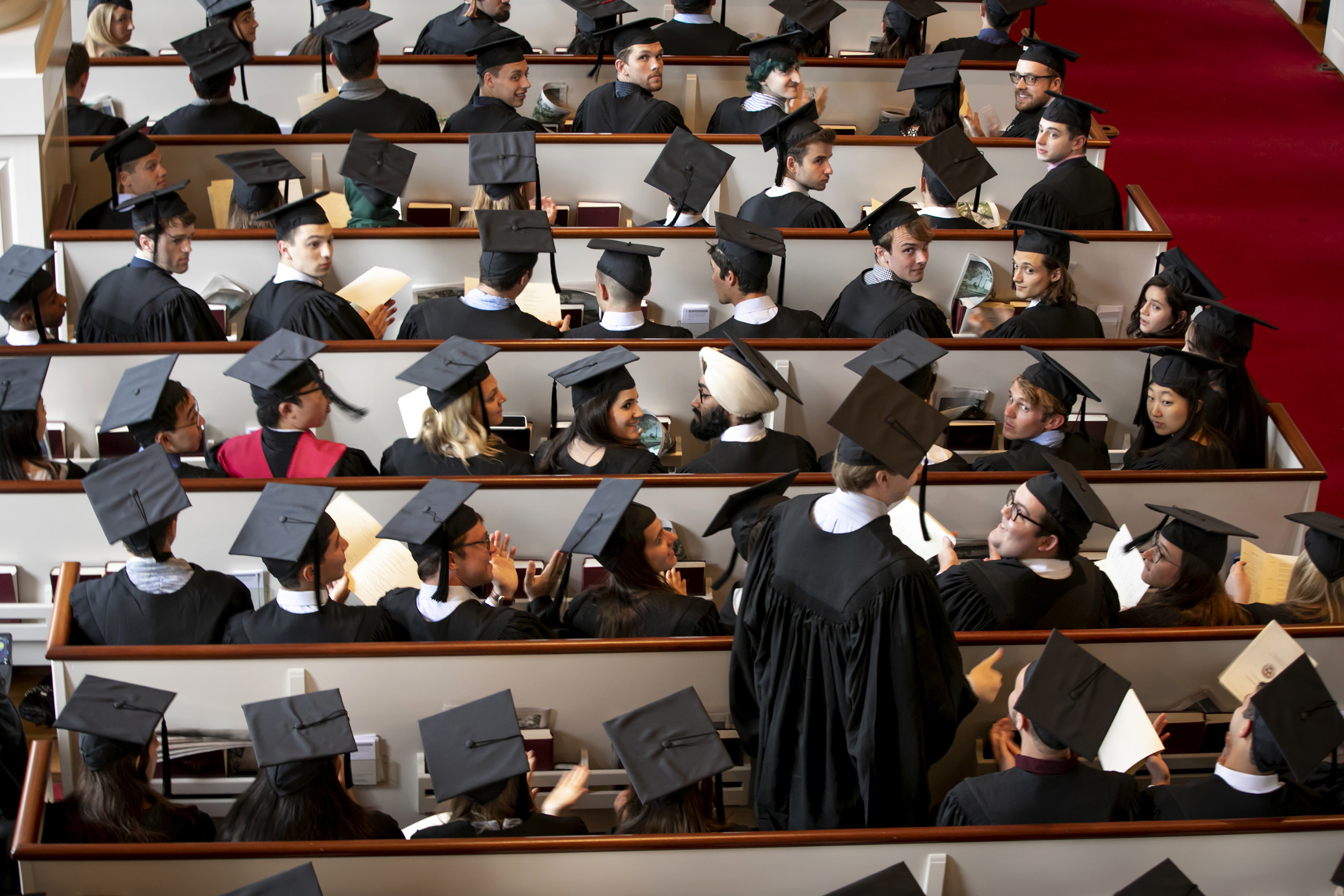
Rose Lincoln/Harvard Staff Photographer
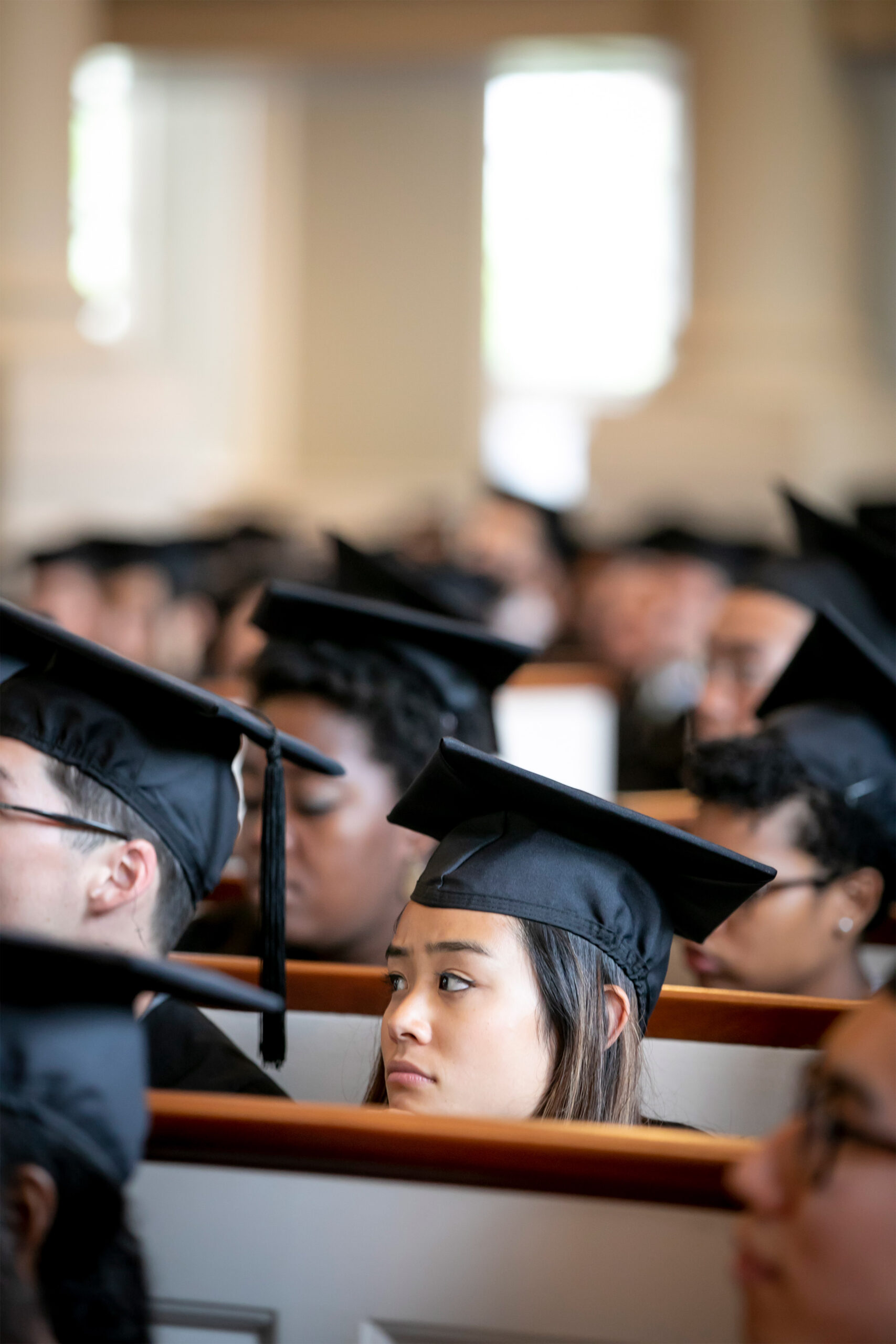
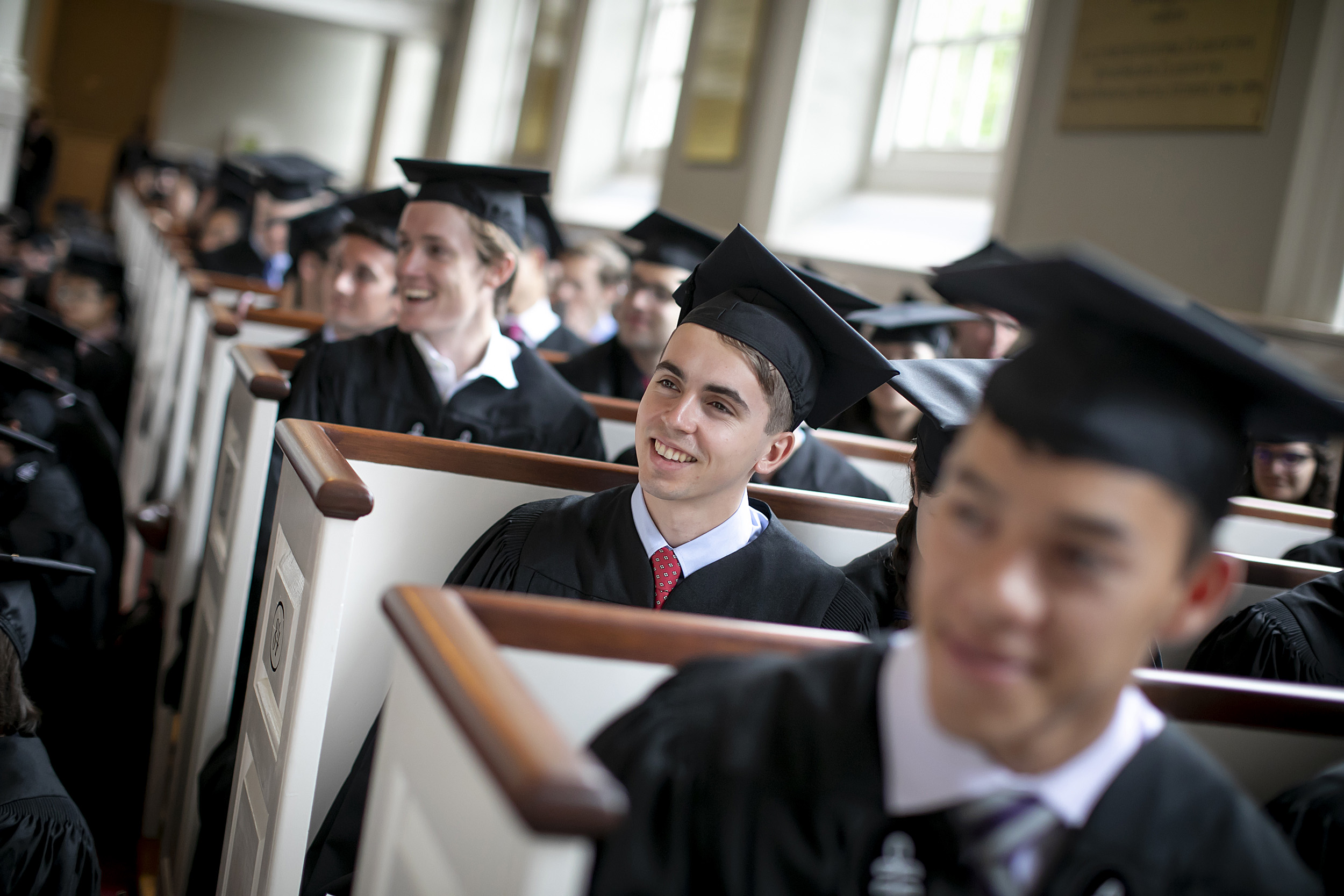
Photos by Rose Lincoln/Harvard Staff Photographer
Listen to Faust’s address to graduating seniors
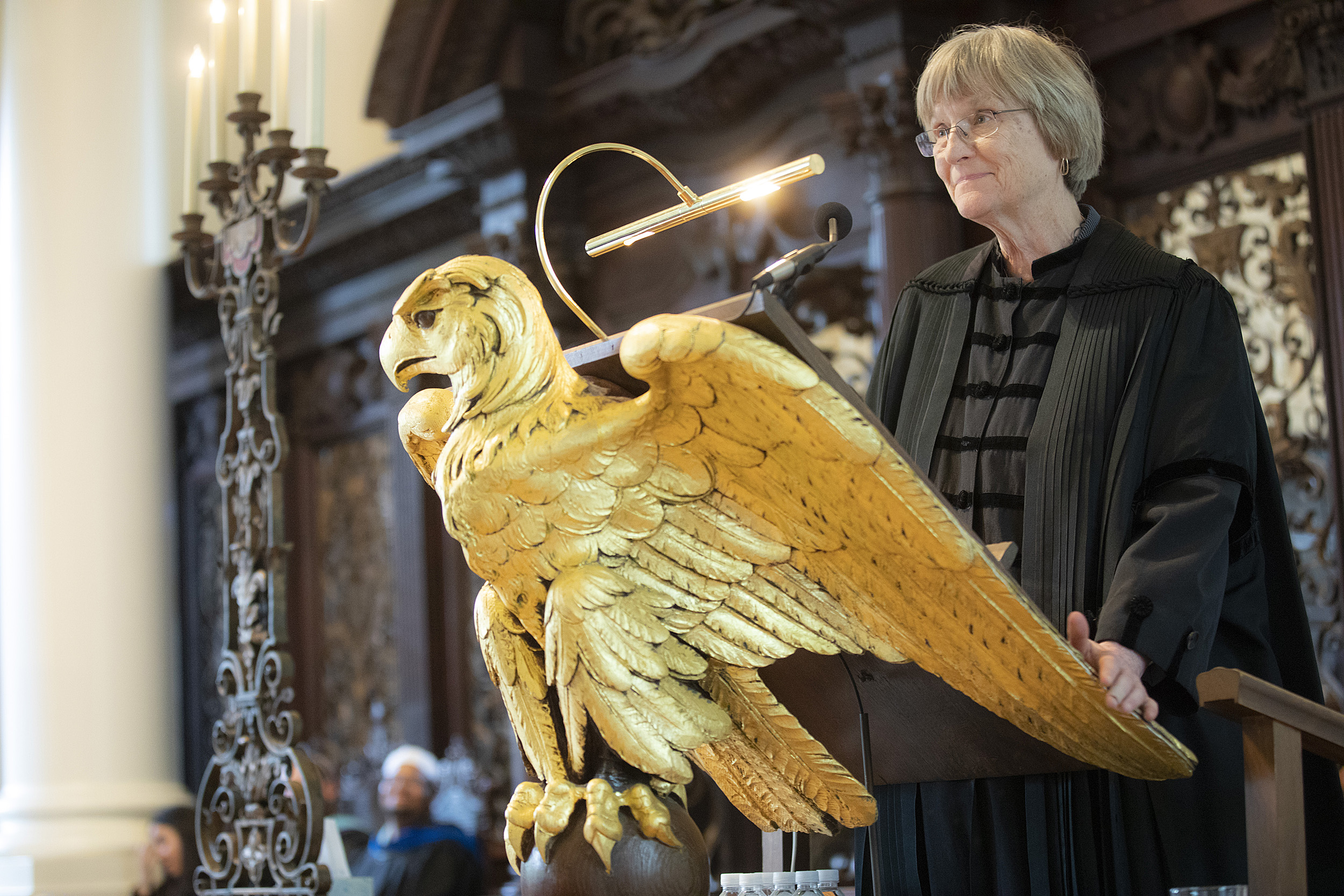
Kris Snibbe/Harvard Staff Photographer
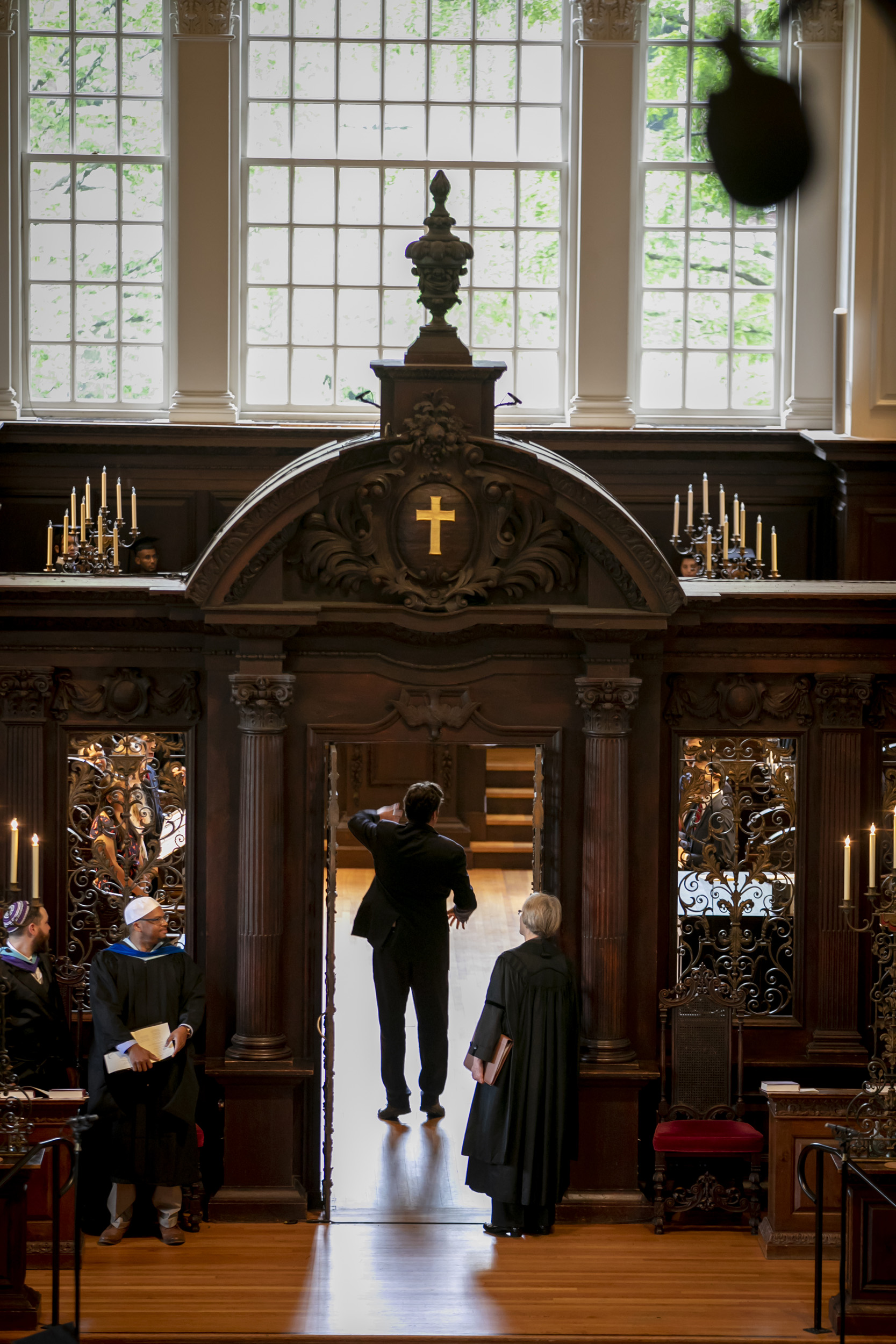
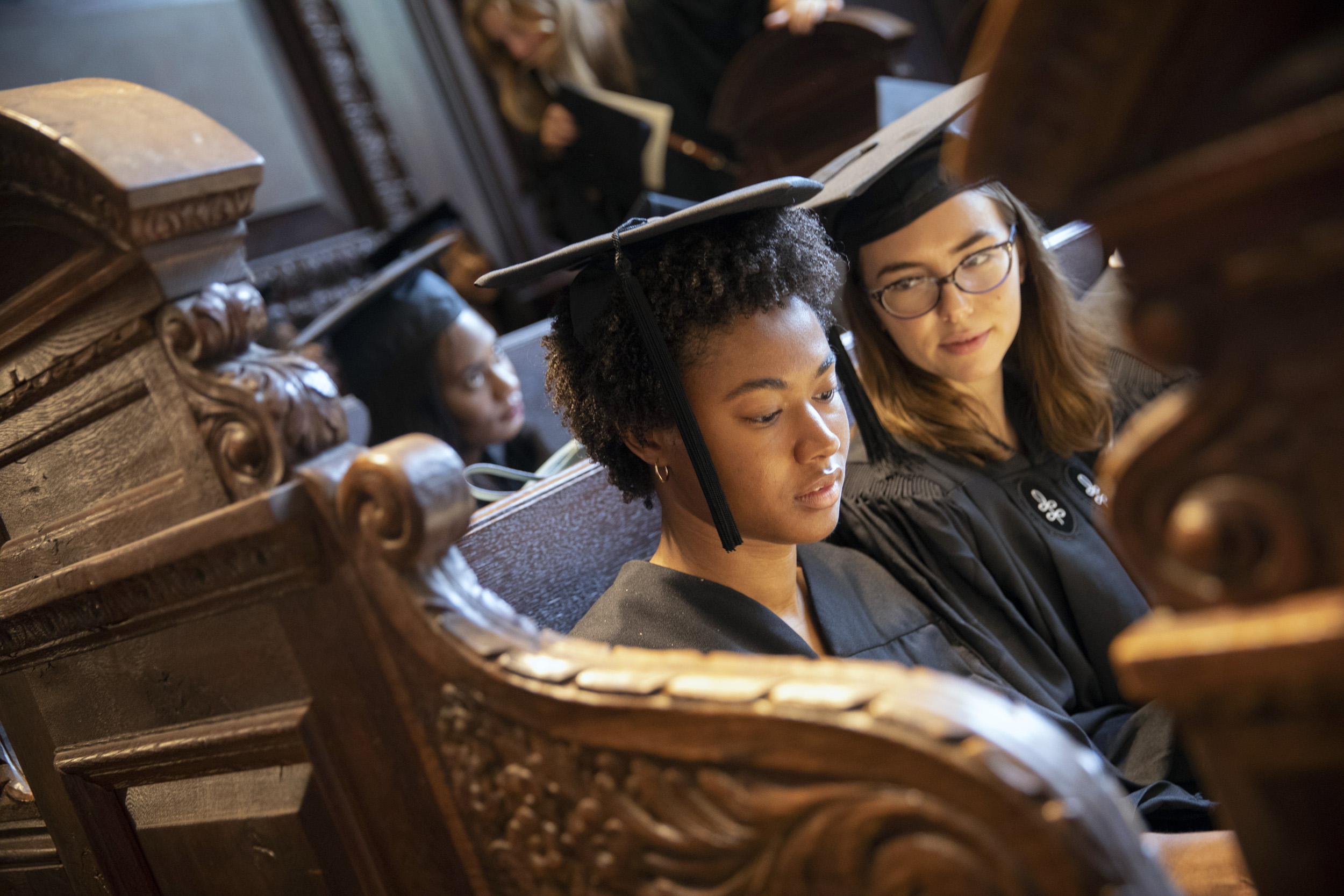
Faust stands to watch the choir perform.
Rose Lincoln and Kris Snibbe/Harvard Staff Photographers
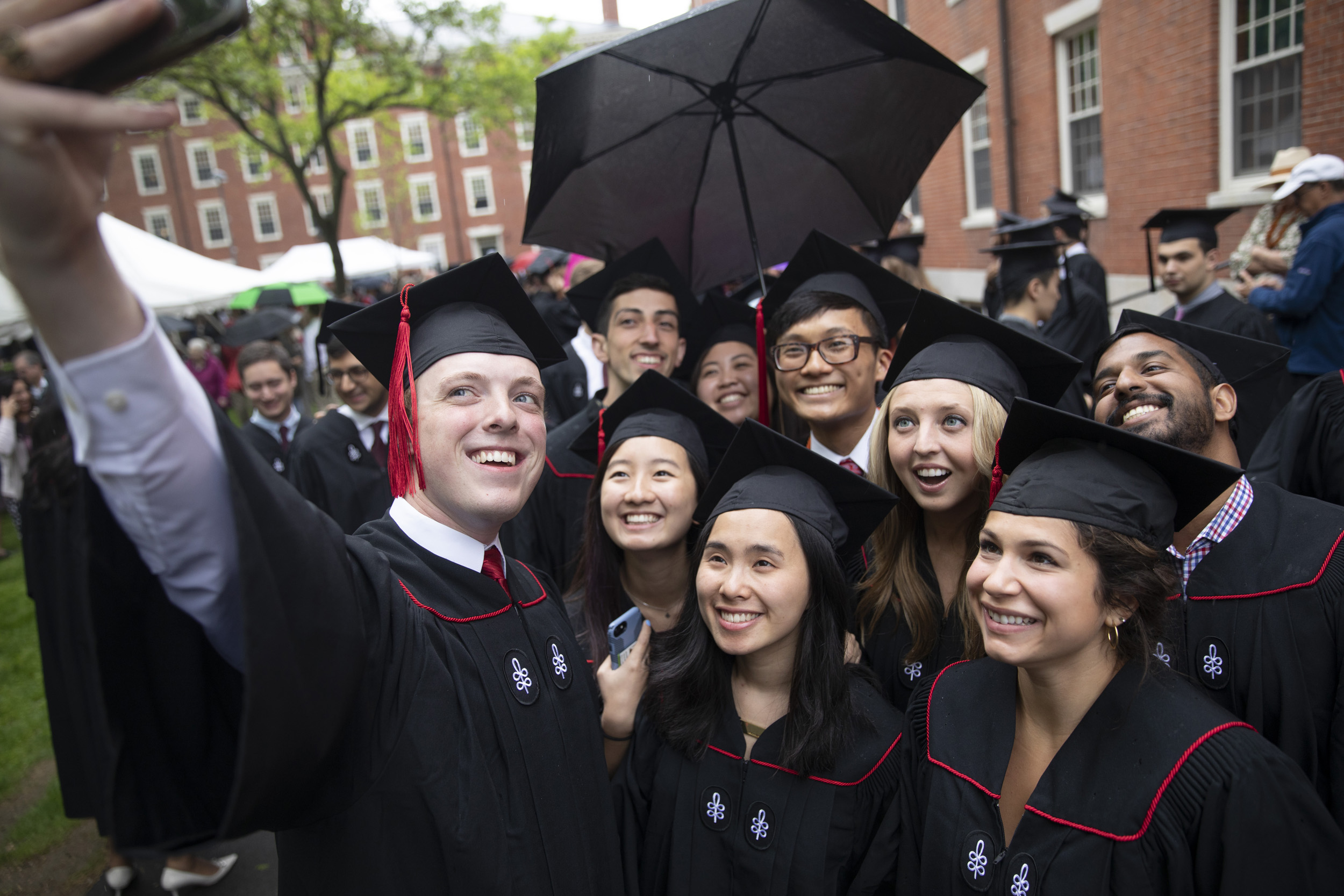
Kris Snibbe/Harvard Staff Photographer
Faust’s recalled her freshman year in college, seeing future congressman John Lewis and other civil rights marchers beaten and tear-gassed while attempting to peacefully cross the Edmund Pettus Bridge in Selma, Ala.
“I felt a moral imperative to act — it was as if there was no other choice. Congressman Lewis calls it ‘making necessary trouble’ — a willingness to get in the way. I hear in your stories that same imperative.”
“See with fresh eyes,” Faust offered as her second principle, urging the students to draw deeper lessons from their studies in the arts and humanities and the sciences — patience, an appreciation for the value of listening, and a commitment to seeking out diverse perspectives.
A liberal arts education, said Faust, “enables us to see the world in order to understand how we can transform it.”
Finally, Faust told the seniors to “take this spirit of transformation with you”— a spirit linked to their professors and friends and the lessons of four years on campus — and to “keep the fire fueled by your education burning.”
Plummer Professor of Christian Morals and Pusey Minister in the Memorial Church Jonathan Walton encouraged listeners to think of Commencement as the beginning of a life enriched by the lessons and virtues instilled during college.
“Wisdom is more precious than silver or gold,” he said. “The common good outlasts individual accomplishments. And every grand idea that has ever pushed humanity forward began with a dream and faith put it into action.
“Be proud in recalling how far you have traveled in these four years, as well as the many obstacles that you have overcome,” he added. “Yet embrace humbly the infinite paths of possibility that are ahead of you.
The ceremony included songs, readings, prayers and blessings from a range of faiths and traditions. Graduates departed in a reflective mood.
Eden Girma said that she has come a long way since she first arrived on campus four years ago. A student in the Harvard-New England Conservatory dual degree program, Girma will head to London after graduation to study composition. She said she was grateful for Harvard’s resources and opportunities, but that her greatest transformation came “from the people I’ve been able to meet and interact with.”



